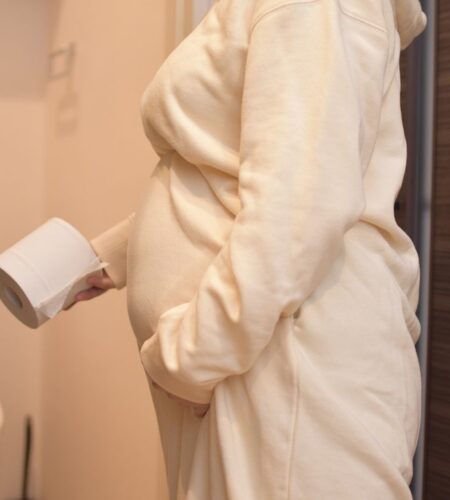Pregnancy is a time of immense change, both in your body and your life. While many aspects of pregnancy are joyful, it can also bring some unexpected challenges. One of these challenges is dealing with diarrhea during pregnancy. If you’re experiencing this discomfort, you’re not alone. In this comprehensive guide, we’ll explore the causes, symptoms, and effective remedies for diarrhea during pregnancy, providing you with the knowledge and solutions you need to ensure a healthy and comfortable pregnancy journey.
Table of Contents
Introduction: Understanding Diarrhea During Pregnancy

What Is Diarrhea?
Diarrhea is a common digestive issue characterized by frequent, loose, and watery bowel movements. It can be caused by various factors, including infections, dietary choices, and underlying health conditions.
Prevalence of Diarrhea During Pregnancy
Diarrhea during pregnancy is more common than you might think. The hormonal and physical changes that occur in your body during pregnancy can affect your digestion, leading to bouts of diarrhea. While it can be uncomfortable, it’s often a temporary issue that can be managed with the right approach.
Causes of Diarrhea During Pregnancy
Hormonal Changes
Hormonal fluctuations during pregnancy can impact the digestive system. Hormones like progesterone, which relax the muscles in the body, can slow down the movement of food through the intestines, leading to diarrhea.
Dietary Changes
Pregnant women often make dietary adjustments, such as increasing fiber intake. While fiber is essential for regular bowel movements, sudden dietary changes can lead to diarrhea as your body adapts.
Prenatal Vitamins
Taking prenatal vitamins is crucial for meeting your nutritional needs during pregnancy. However, the iron in some prenatal vitamins can cause digestive upset and diarrhea in some women.
Food Sensitivities
Pregnancy can make you more sensitive to certain foods. Food sensitivities or intolerances, such as lactose intolerance, can trigger diarrhea when you consume these foods.
Infections and Illnesses
Infections, like food poisoning or gastrointestinal illnesses, can cause diarrhea. Pregnant women may be more susceptible to infections, and these can lead to gastrointestinal discomfort.
Symptoms of Diarrhea During Pregnancy

Frequency of Bowel Movements
Frequent trips to the bathroom, with three or more loose bowel movements in a day, are a typical symptom of diarrhea.
Consistency and Appearance
Diarrhea stools are loose and watery, often lacking the typical form and consistency of regular bowel movements.
Abdominal Cramping
Abdominal cramping, similar to menstrual cramps, may accompany diarrhea during pregnancy.
Other Associated Symptoms
In addition to loose stools and cramping, you may experience symptoms like nausea, vomiting, and fever if an infection is the cause.
When to Seek Medical Attention
Dehydration
Dehydration is a significant concern when experiencing diarrhea during pregnancy. Signs of dehydration include dark yellow urine, dry mouth, extreme thirst, and dizziness. If you suspect dehydration, seek medical help promptly.
Blood in Stool
If you notice blood in your stool, contact your healthcare provider immediately, as it can be a sign of a more serious issue.
Severe Abdominal Pain
Severe abdominal pain, especially if it’s concentrated on one side, can be a sign of a more serious condition and requires prompt medical evaluation.
Remedies for Diarrhea During Pregnancy

Dietary Adjustments
- BRAT Diet: The BRAT diet (bananas, rice, applesauce, and toast) is often recommended for soothing diarrhea.
- Fiber-Rich Foods: Incorporate soluble fiber sources like oatmeal and whole grains into your diet.
Hydration
Staying well-hydrated is crucial. Drink plenty of water, herbal teas, and clear broths to prevent dehydration.
Medications
Use over-the-counter medications only under the guidance of your healthcare provider. Some medications may be safe during pregnancy, while others are best avoided.
Probiotics
Probiotic supplements or probiotic-rich foods like yogurt may help restore the balance of beneficial bacteria in your gut.
Stress Management
Stress can exacerbate gastrointestinal symptoms. Practice relaxation techniques, such as deep breathing and prenatal yoga, to reduce stress.
Rest and Self-Care

Get adequate rest and prioritize self-care. Stress and exhaustion can worsen digestive issues.
Preventing Diarrhea During Pregnancy
Healthy Eating Habits
Maintain a balanced diet with a focus on whole, unprocessed foods. Gradually introduce dietary changes to prevent sudden digestive upsets.
Hygiene and Food Safety
Practice good hygiene and food safety. Wash your hands thoroughly and ensure that all foods are properly cooked and stored.
Conclusion: Navigating Diarrhea During Pregnancy with Confidence
While diarrhea during pregnancy can be uncomfortable, it’s often a temporary issue that can be managed effectively. By understanding the causes, recognizing symptoms, and following remedies and prevention strategies, you can navigate this aspect of pregnancy with confidence. If you have concerns or your symptoms persist, consult your healthcare provider for guidance and support. Remember, you’re not alone in experiencing these challenges, and with the right approach, you can maintain a healthy and comfortable pregnancy journey.




Comments